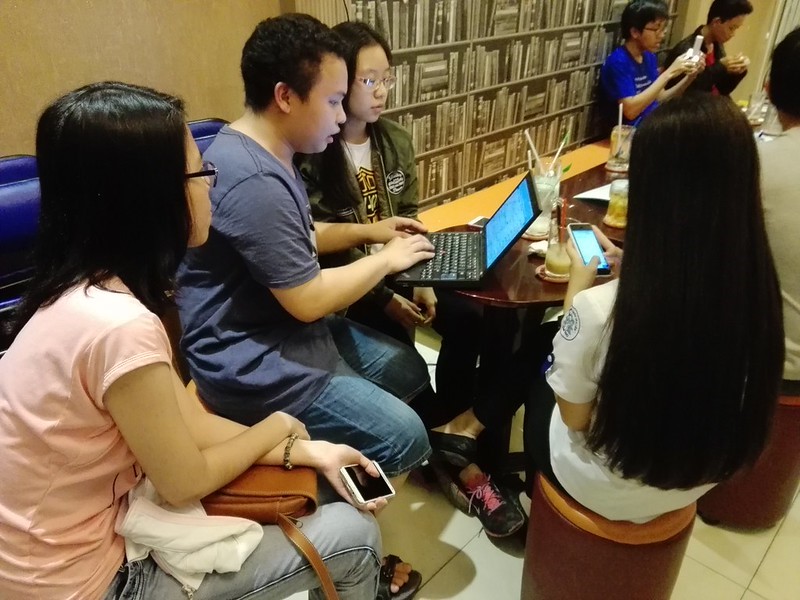
For students taking A-level exams, a large majority, if not all of them, would always comment about it being extremely difficult.
Fortunately, some of these students have guides that can help them understand the process, including what to expect during the exam and how to keep up with registration deadlines.
However, it is a different story for private candidates who have none of them. Private candidates will need to plan their time properly, ensuring they prepare for the exam adequately while still meeting the registration dues. Although it is possible to retake the exam, this can take up too much time, resources, and effort.
To help clear out some confusion, this guide will provide everything a private candidate should know and prepare when taking A-level exams.
Registration

Before anything else, you must ensure that you’re registered. However, releasing exam dates happens around the beginning of March, so you should be on high alert at that time to register for the exams you want to take immediately.
Moreover, you should be at least 17 years old to qualify. On the other hand, for A-level exams, you may choose either of these two subject combinations for your exam:
1) Five H1 subjects and three H2 subjects max
2) Three H1 subjects and four H2 subjects max
Payment Mode and Fees
In Singapore, the examination fee will be dependent on your citizenship. Nonetheless, every student’s total fee will include both basic and subject fees. In addition, it is also important to remember that these fees are subjected to a 7% GST tax.
The subject fee will also vary depending on citizenship and the subjects you opt to take. For Singapore citizens, it runs from $80 to $160, whereas International students and permanent residents will have to pay around $200 to $350.

For your reference, here are the fees for every student taking A-level exams for the year 2021. Do note that this is subject to change and are not final:
- Singapore Citizen: $64 basic fee and only $32 for solely local subjects
- Permanent Resident: $80 basic fee and only $40 for solely local subjects
- International Student: $100 basic fee and only $50 for solely local subjects
As for the payment method, a private candidate can choose any of the following:
- Online Debit or Credit Payment
- NETs Payment or Cash
Cash or NETs payments can be made at SingPost offices and self-automated machines. For this, you need to note down your reference number on your Payment Advice Slip taken from the Internet Examination Registration System.
Choosing Subjects
Now, this is debatably one of the trickiest decisions you can make. During this stage, you need to think not only about the subjects you want to take but also which university you want to enter as they vary on their acceptance criteria. However, your results will determine if you’re qualified to enter this particular university.

For private candidates, you have two levels of subjects, H1 and H2. For four subjects, at least one of them should belong to the opposing discipline.
So if you’ve already chosen three subjects in English Literature, then the last subject should be a completely different one like History or Physics perhaps.
With that said, here are some common subjects you might consider:
- Biology
- Chinese
- General Paper
- History
- English Literature
- Mathematics
- Economics
Tips on Studying Independently

Since A-level exams require extensive knowledge of the different disciplines, many students might feel that self-studying is insufficient.
However, this is a misconception as many private candidates perform as well or even better than those who studied in institutions. Still, the secret is to know the best study habit for you and have the right resources to use in your study sessions.
There are two effective ways to obtain credible sources:
- The easiest way is to ask around. If you know someone studying for the A-level exams in a school, then use that advantage and ask about the books they use and purchase them for yourself. If they are kind enough to lend you notes, then that’s even better.
- Another way is to surf the internet. Surely, by researching, you will be able to find hundreds of sources and free courses, and videos that are extremely helpful in your study sessions. There are also a lot of free downloadable test papers you can find online.
If you are aiming for higher grades, you can check out other resources to get tips for better time management.
Studying with Assistance

If you’re the type of person who struggles with learning by themselves and if you believe that you will be able to obtain better grades if someone teaches you, then you might prefer taking private tutoring or attending review centres.
Private Tutoring
In general, private tutoring can be ideal if you want a more personalized approach since sessions are mostly one-on-one. Here, your tutor will be focused entirely on you, so you can progress more quickly.
Of course, one-on-one tutoring is also a costly alternative. However, if you feel uncomfortable learning with a group, then this would be suitable for you. You can check online resources to learn more about the tuition rates in Singapore.
Review Centres
Attending A-level courses in review centres is also an expensive but smart choice. In fact, it is quite similar to junior colleges. They usually put all their private candidates in one setting and teach them simultaneously at a fixed time. The duration can go from ten months to two years.
It would be best to check out resources such as the best tuition centers in Singapore for 2021. However, you will still be considered a private candidate during the exams as you do not register under the school’s name.
In this case, the price range for A-level courses in review centres is typically around $10,000 to $20,000 for private candidates, so you might want to rethink its necessity as this can cost a lot.
Nevertheless, the advantage of preparing at review centres is that you’re with fellow examinees, so you can compare notes and receive additional support from them. Aside from this, preparing with other students can help you feel more motivated to do well on the exam.
Final Thoughts

Whether you’re preparing for an A-level exam at a junior college or independently, none of these guarantee a passing mark. It all boils down to knowing what you’re good at and what kind of learning best fits you and your cognitive abilities.
So if you’re an intrapersonal learner, self-studying as a private candidate is not a problem as long as you are determined, focused, goal-oriented, and equipped with the right mindset.
Regardless of the difficulty of A-level exams, as long as you’re going through the right sources and are consistent in your studies, you don’t have to be intimidated by junior college students.
After all, preparing in a school doesn’t mean they are better; it just means they learn differently and use whatever means they can to pass just like you are.
Exams can be difficult. Luckily, we’ve prepared some tips to help you prepare for any upcoming exams. You can check them here:
How to Burn Midnight Oil Effectively to Study for Your Exams
